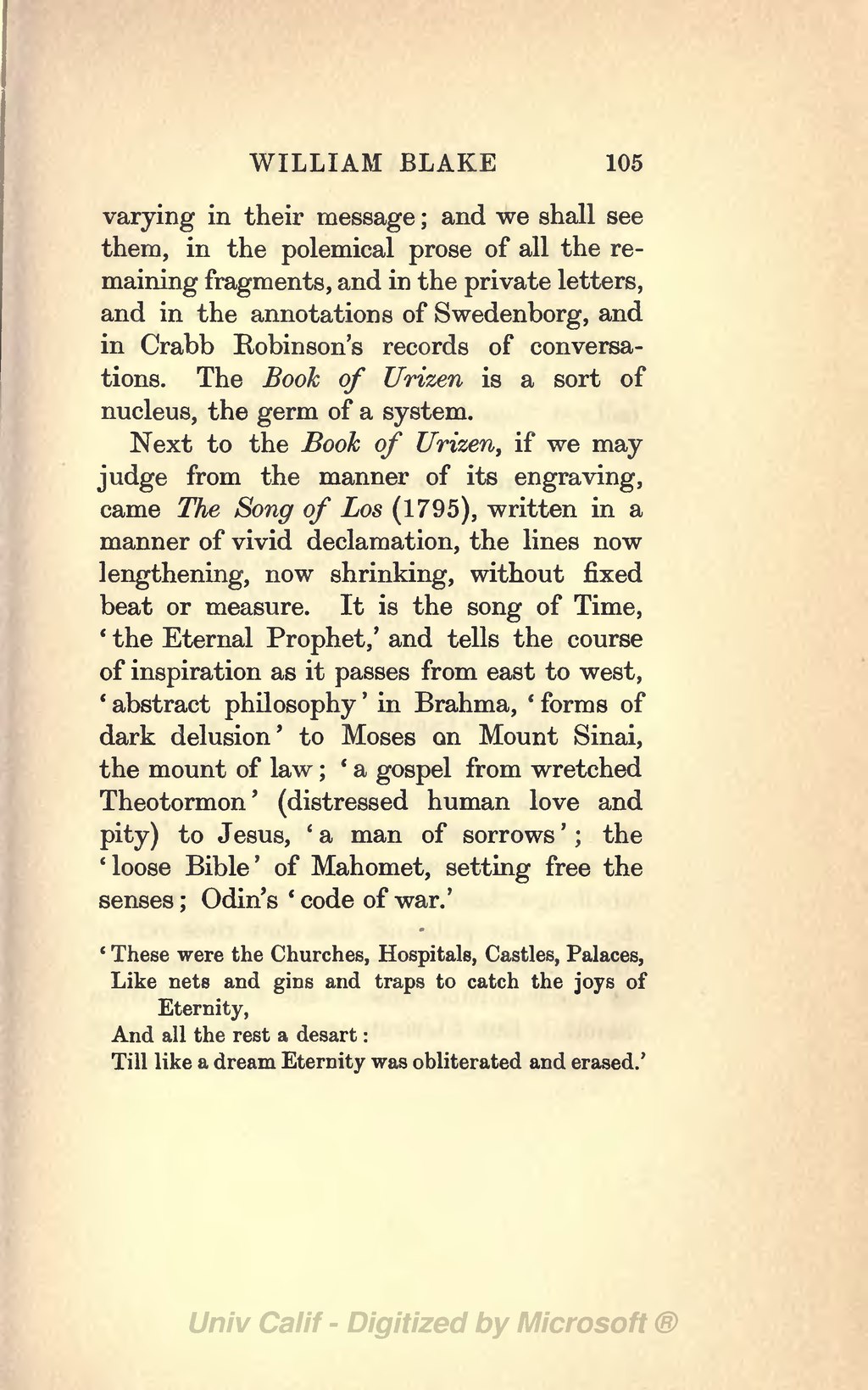varying in their message; and we shall see them, in the polemical prose of all the remaining fragments, and in the private letters, and in the annotations of Swedenborg, and in Crabb Robinson's records of conversations. The Book of Urizen is a sort of nucleus, the germ of a system.
Next to the Book of Urizen, if we may judge from the manner of its engraving, came The Song of Los (1795), written in a manner of vivid declamation, the lines now lengthening, now shrinking, without fixed beat or measure. It is the song of Time, 'the Eternal Prophet,' and tells the course of inspiration as it passes from east to west, 'abstract philosophy' in Brahma, 'forms of dark delusion' to Moses on Mount Sinai, the mount of law; 'a gospel from wretched Theotormon' (distressed human love and pity) to Jesus, 'a man of sorrows'; the 'loose Bible' of Mahomet, setting free the senses; Odin's 'code of war.'
'These were the Churches, Hospitals, Castles, Palaces,
Like nets and gins and traps to catch the joys of Eternity,
And all the rest a desart:
Till like a dream Eternity was obliterated and erased.'
